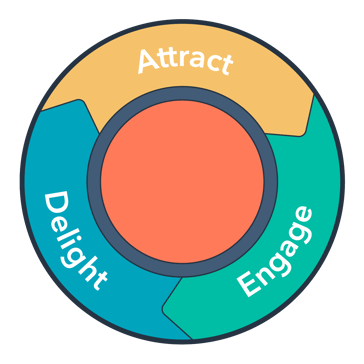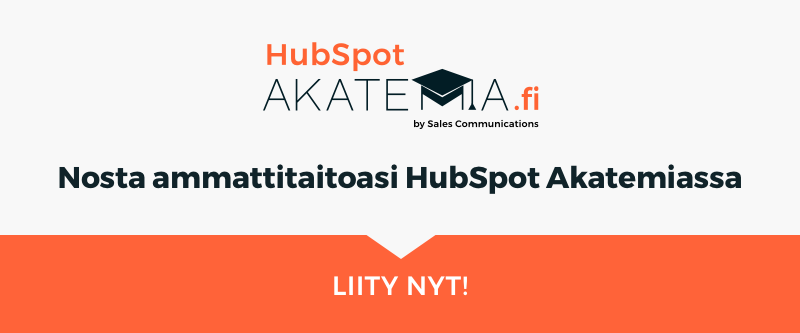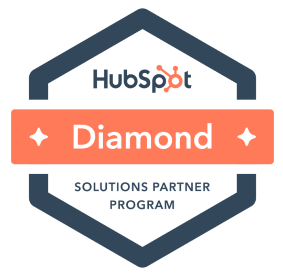Listen to the blog
Two years ago I did my thesis about customer knowledge management (CKM) in a Finnish management consulting company. While starting to write the thesis, it was quickly obvious how critical CKM is for companies. How you can manage customer knowledge determines your ability to serve customers better and grow your company. As stated by Gibbert et al. (2002), CKM:
“is about gaining, sharing, and expanding the knowledge residing in customers, to both customer and corporate benefit”.
In sales, marketing, and customer service with excellent CKM you can enhance the process of attracting, engaging, and delighting customers. With effective CKM you can decrease friction between these functions and facilitate better customer experiences throughout the customer journey. Finally, the flywheel keeps spinning and spinning.

What are the key elements of successful CKM?
1. Organizational learning processes
How you acquire, distribute, interpret, and document information is utmost important processes in CKM. In my Master’s Thesis I found out that organizational memory and the ways of documenting and distributing information were the key processes that facilitated other processes and ensured the success of CKM. For example in sales, you need to have clear processes and guidelines for documenting and storing information. Furthermore, clear process view of the required information is needed in each phase of the sales process.
- In our case we have defined criteria for what kind of information is needed in order to move the sales process to the next phase. For instance, we use GPCT framework (Goals, Plans, Challenges, Timeline) in opportunity qualification.
2. Capabilities
In guaranteeing the success of CKM, you need to have strong capabilities that make the most out of customer knowledge. Firstly, customer/marketing database is evidently necessary. Especially for sales, CRM is your worst enemy or your dear loved one. CRM can easily agonize you, when the information is hard to acquire, utilize, distribute or document. This was the case in my case company. Although, you have clearly defined processes for CKM, outdated CRM or marketing database can easily slow you down.
"Especially for sales, CRM is your worst enemy or your dear loved one."
If you want to achieve efficient CKM, choose a CRM and marketing database that doesn’t slow salespeople down. Choose a CRM that automatically fills itself and has tools that truly helps salespeople in their daily work.
- If you need help in updating your CRM or marketing database, here’s my calendar link where you can reserve a time slot for the discussion.
Secondly, data quality is of course very important. In my case company the amount of data wasn’t the biggest challenge but the good amount of quality data in an easily findable and usable format was. Thus, defined criteria for the required quality data/information in the CRM is crucial.
Finally, this all doesn’t happen without humans. You can’t get quality information if you are not professional in your field. In sales this is, again, very paramount. Here’s a quick list of how to get quality information:
- Trust building with the customer
- Professionalism and experience
- Right questions
- Emotional intelligence
- Defined customer acquisition process
- Give and get (reciprocation)

3. Management and organizational culture.
The management team lays out the foundation what kind of information is needed in different steps of the customer journey. And not only laying out the foundation but also reminding people about the importance of acquiring, utilizing, distributing, documenting and storing information. Additionally, there needs to be clear managerial processes that support efficient knowledge management. For example, weekly meetings including KPIs that concern customer knowledge (e.g. NPS, customer satisfaction, churn rate) are a way to monitor the success of CKM.
Moreover, management has to understand that company’s vision and culture are profound elements of organizational learning and CKM. As Slater & Narver (1995) state, market-oriented learning organizations have a shared vision, commitment to learning, clear and efficient knowledge processes. Thus, the purpose and growth driven organizations are usually the organizations that learn faster than others.
In our case, our company understands the importance of learning. We arrange quarterly “Certification Days” in which every employee spends a day in learning more about his/her field by doing HubSpot Certifications at HubSpot Academy.
5 benefits of successful CKM
- More efficient and effective customer acquisition process
- Superior customer value
- Growth
- Competitive advantage
- Organizational learning
Final thoughts
Some wise man once said learning is remembering things that once was learned (and forgotten) and then applying it to your actions. Hence, I would like to recommend you to go back to your old materials or books learnt in the university. Revise them to check if there's anything that would be beneficial to your work and apply it straight away.
--
References:
Michael Gibbert, Marius Leibold and Gilbert Probst. Five Styles of Customer Knowledge Management, and How Smart Companies Use Them To Create Value. European Management Journal, 2002, vol. 20, issue 5, pp. 459-469.



